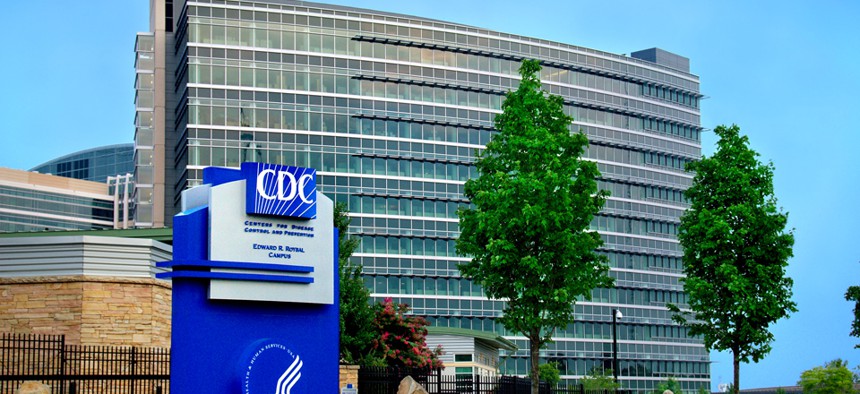
Centers for Disease Control and Prevention
The CDC Is Using Twitter to Explain Ebola to the Masses
The health organization is condensing warnings and guidelines into 140-character snippets in a Monday chat.
When Kent Brantly, an American doctor suffering from Ebola, was flown from Liberia to Atlanta last week, he became the first person to be treated for the virus in the United States.
His arrival made many people nervous. After all, the Ebola virus, one of the deadliest pathogens known to man, has never been reported on American soil. Are we risking a stateside outbreak by bringing the doctor here?
No, says the Centers for Disease Control and Prevention. While it's impossible to say that no one in the U.S. will become infected with the virus, the risk of an epidemic is extremely low, the CDC says, and the general public shouldn't be worried. To drive that point home, the public health institute launched an hour-long discussion on Twitter at 4 p.m. Monday using the hashtag #CDCchat. The questions have been pouring in every second since.
So far, Ebola experts tweeting from several CDC Twitter accounts have answered questions about how the disease spreads, what its symptoms are, what precautions people should take, and more—all in 140-character snippets. Here's a sampling:
.@itsmealexandra Very low risk, given the quality of our hospitals and healthcare system. #cdcchat #ebola
— CDC (@CDCgov) August 4, 2014
.@Sibtain1314 - #Ebola early symptoms: fever, diarrhea, vomiting. Later symptoms can include multi-organ failure leading to death. #CDCchat
— CDC Emergency (@CDCemergency) August 4, 2014
.@LiliCouture #Ebola patients are only contagious when symptomatic, so monitoring travelers is an important tool. #CDCchat
— CDC Travel Health (@CDCtravel) August 4, 2014
.@TananariveDue Promising #Ebola treatmnt ~1-2yrs away. Expensive for rural Africans bt perhaps donated/provided during outbreaks #CDCchat
— CDC (@CDCgov) August 4, 2014Scroll through the fast-moving conversation here.
Shortly after the Twitter chat began, the local ABC News affiliate in New York reported that a patient at Mount Sinai Hospital who had recently traveled to West Africa is being tested for Ebola. The man had arrived in the hospital's emergency room on Monday morning with a high fever and gastrointestinal symptoms, and has been placed in isolation.
There will only be more questions.
NEXT STORY: One Habit Hack That Works: Hit the Showers







